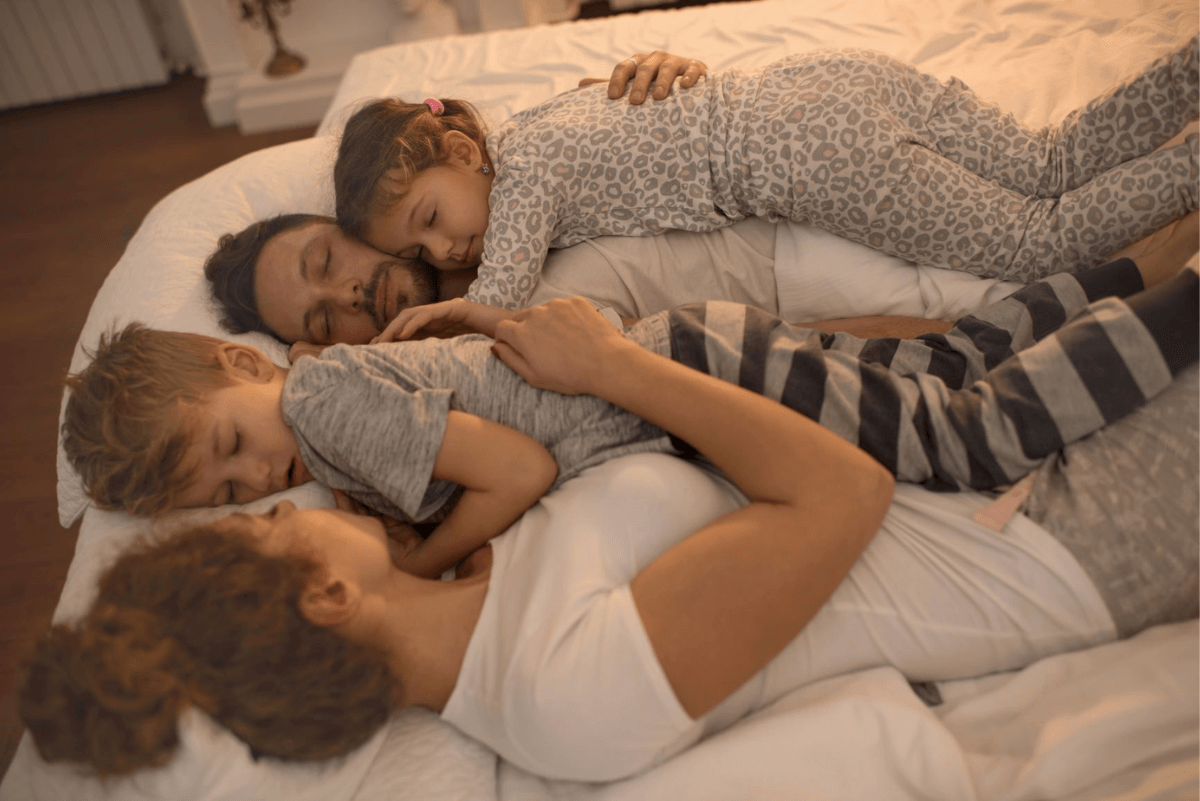Bedtime Tips For Kids - Ensure A Restful Sleep

If you’ve ever felt concern over your children’s sleeping patterns or habits, you’re not alone.
Our second annual State of the Nation Parenting Survey found sleep to be one of the top three health concerns Kiwi parents have for their children, with 31% of respondents having experienced worry over issues such as kids getting too much or too little sleep, or having disrupted sleeping patterns.
Getting a good night’s sleep is vital for adults and children alike, but for kids, sleep plays an especially crucial role in aiding their growth and development.
When the kids miss out on sleep, it can also have serious consequences for their concentration, (and learning) and ability to regulate behaviour – with symptoms similar to those in children with ADHD emerging.
That’s why it’s so important to create an environment which will enable your kids to get the best possible night’s sleep – but that can often be easier said than done.
Here are some sleep hygiene tips to consider, that will help your child sleep soundly.
Be consistent
One of the most common causes of disrupted sleep patterns in children of all ages is a lack of consistency around bedtime routines.
Predictability is comforting for kids, so having a set “wind down” routine that starts at the same time every night, and follows the same patterns (bath, then pyjamas, then bedtime story) will help to establish a better sleep schedule – and promote a good night’s sleep.
As kids get older, this might look like implementing a set electronics-free window every night, starting an hour or two before their agreed bedtime.
Create an ideal sleep environment
An ideal sleep environment should be cool, dark, quiet and comfortable.
As far as possible, make sure children’s bedrooms are free from flashing and bright lights, such as those from toys, digital alarm clocks or computers and other electronic devices – and for more light-sensitive kids, use black-out curtains to limit natural light.
Swap heavier blankets for lighter ones in summer, and provide children with a fan (if necessary) to help stop them from overheating and waking up in the middle of the night. Consider using a white noise machine, too, to block out distracting noises.
It’s also important to make sure that kids only ever use their beds at bedtime – so they don’t come to associate them with other (stimulating) activities like watching TV or playing games, rather than winding down to sleep.
Ensure kids are staying active
Getting out and about for some exercise, either during the day or after school, is also important for promoting better sleep patterns in children.
Exposure to natural light and fresh air during the day helps to support the body’s natural wake / sleep cycles (or circadian rhythm), so kids will start to feel tired naturally as the sun goes down.
About 30 minutes of exercise or sports per day is best, but even just 10 minutes a day of walking, swimming or bike riding will help your child get to sleep faster.